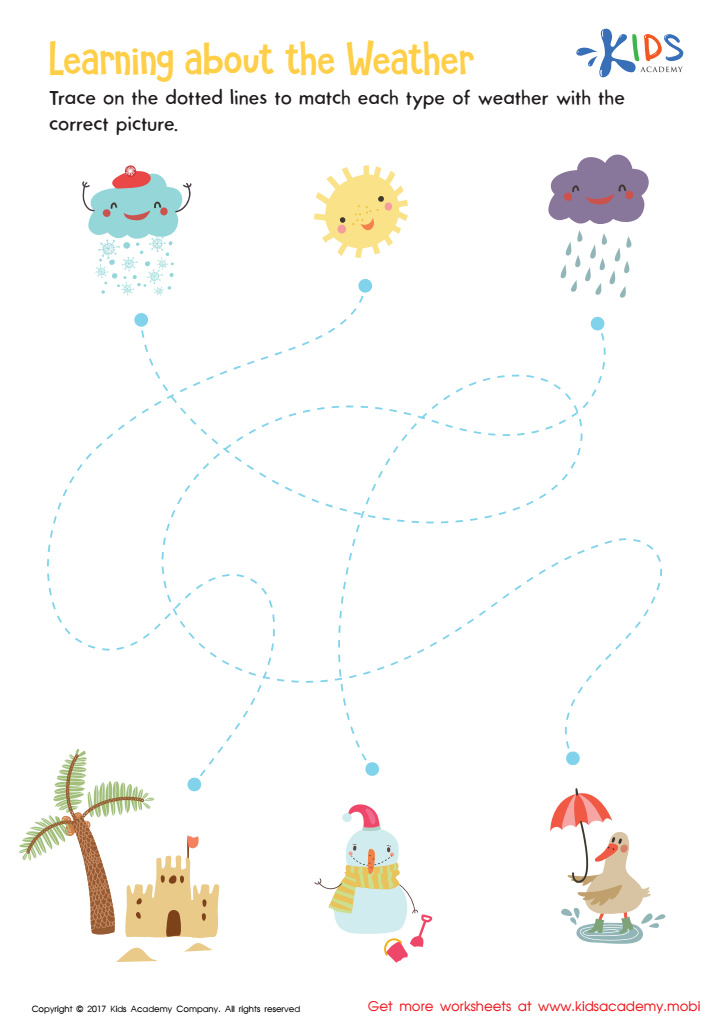Weather identification Science Worksheets for 5-Year-Olds
5 filtered results
-
From - To
Introduce young learners to the fascinating world of weather with our engaging Weather Identification Science Worksheets for 5-Year-Olds! Perfectly designed for inquisitive minds, these printable worksheets from Kids Academy help children identify different weather conditions, understand their characteristics, and expand their basic science skills. They combine colorful illustrations with fun, interactive activities that make learning about sunny, rainy, snowy, and windy days an exciting adventure. Ideal for both classroom and homeschooling settings, our worksheets will spark curiosity and nurture a lifelong love for science. Explore our collection now and watch your young meteorologists shine!
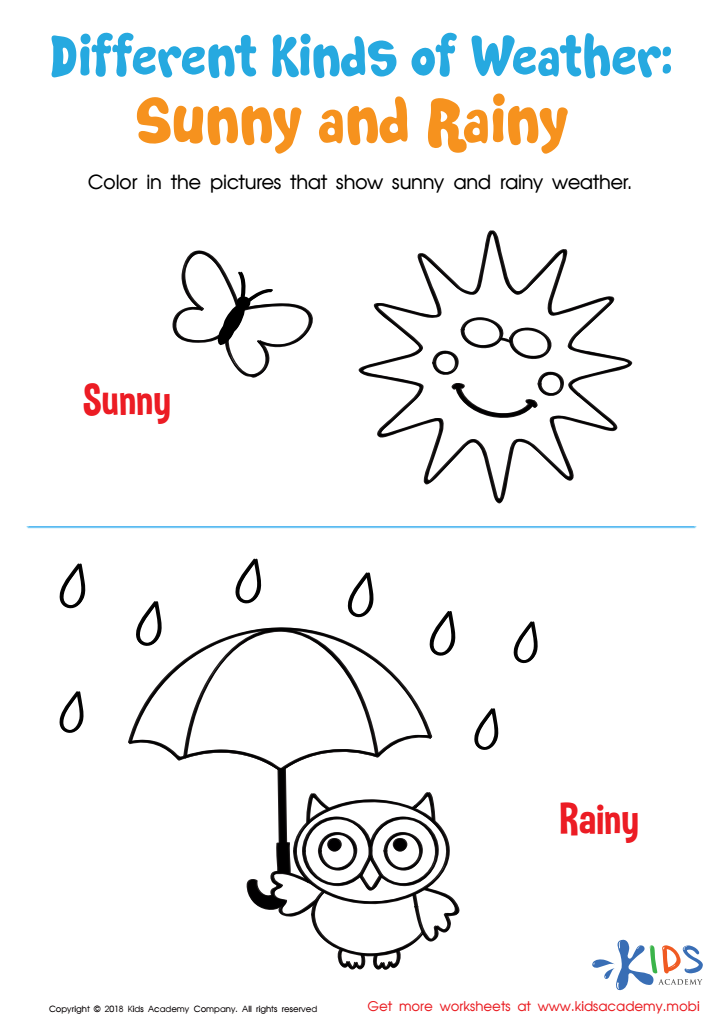

Different Kinds of Weather: Sunny and Rainy Worksheet
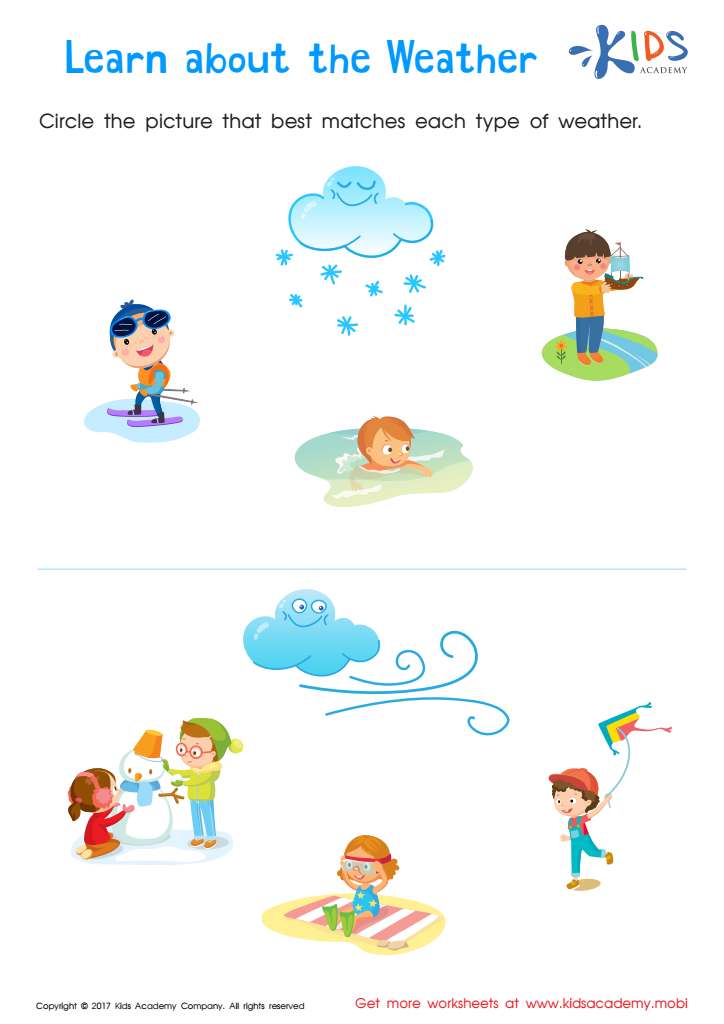

About the Weather Printable
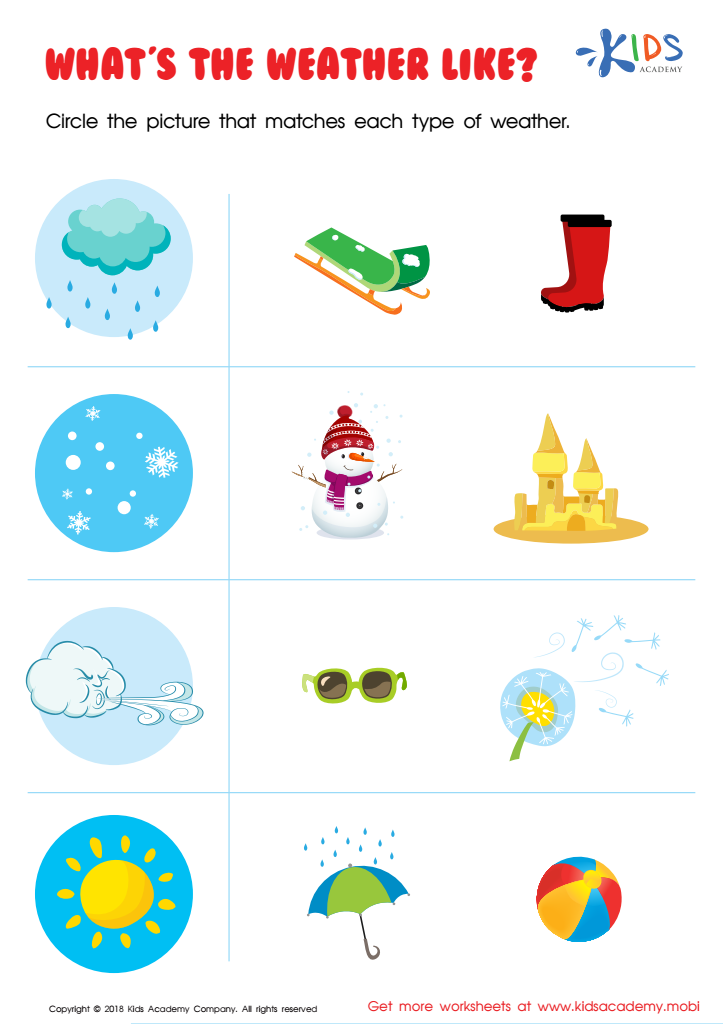

What's the Weather Like? Worksheet
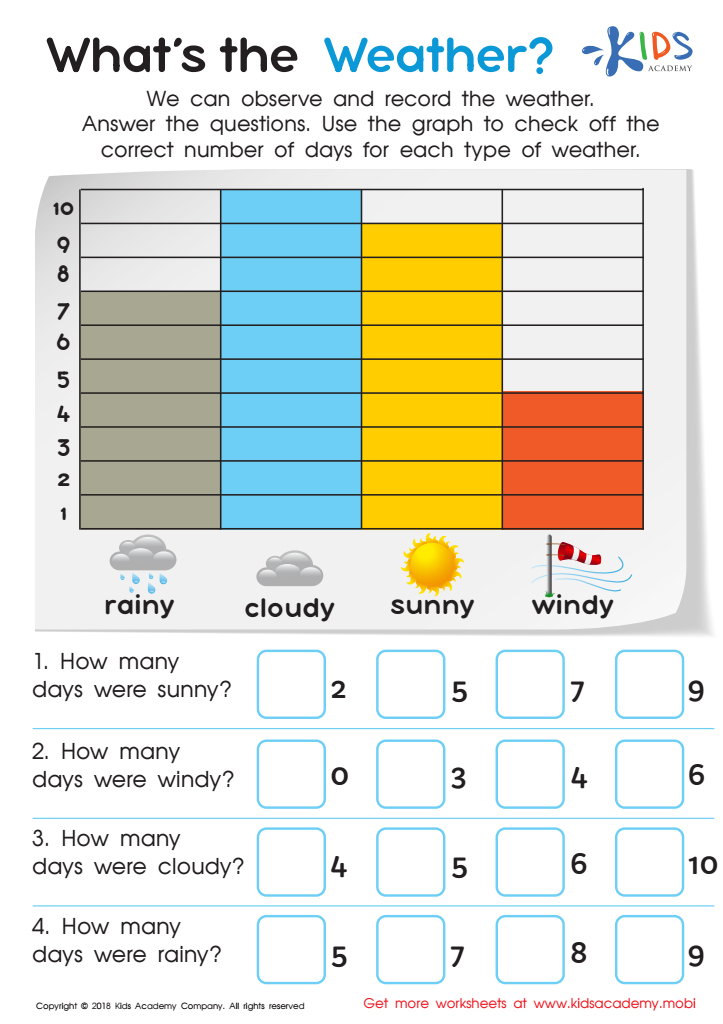

What's the Weather? Worksheet
Understanding weather identification is valuable for young children as it lays the foundation for critical thinking and scientific curiosity. Parents and teachers should recognize that when 5-year-olds learn about weather, they develop essential observational skills, such as noticing cloud patterns, temperature changes, and precipitation types. These activities help sharpen their attention to detail and pattern recognition.
Moreover, weather education aids in comprehension of the environment and natural phenomena, fostering an early appreciation for nature. Understanding the reasons behind daily weather changes, like rain or sunshine, can also reduce anxiety about unpredictable weather and enhance their sense of security.
Weather science introduces basic scientific principles such as cause-and-effect and encourages children to ask questions and seek answers. This builds a strong basis in scientific inquiry that supports future learning in all STEM (Science, Technology, Engineering, Mathematics) fields.
In addition, weather-related activities often involve hands-on experiences, like creating weather charts or doing simple experiments, which can make learning not only informative but also fun.
Therefore, investing time in weather identification can offer both immediate and long-term educational benefits, bolstering cognitive development, natural understanding, and curiosity, which are crucial at this early stage of education.

 Assign to My Students
Assign to My Students
